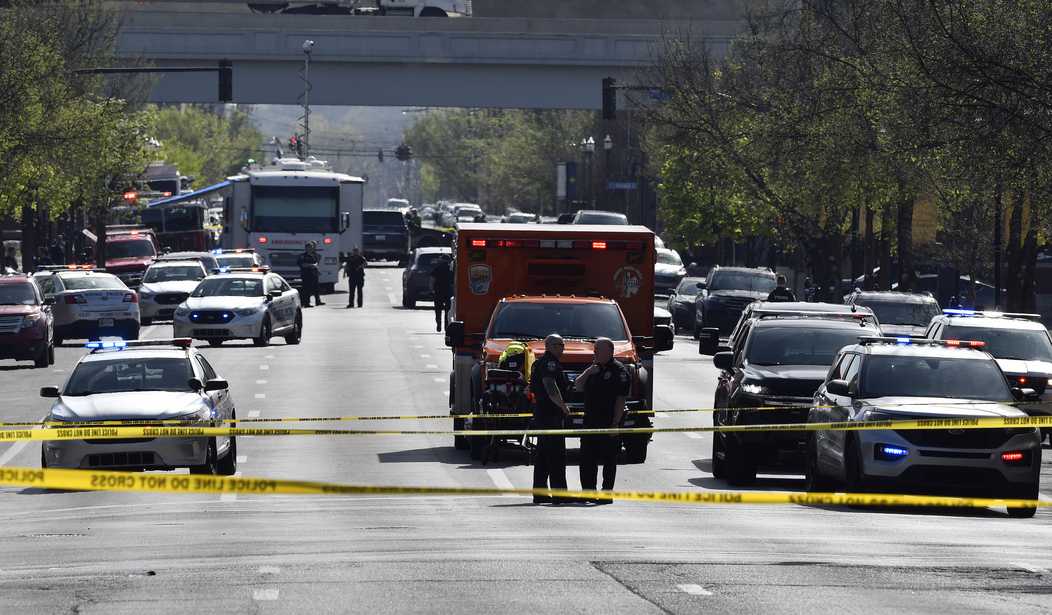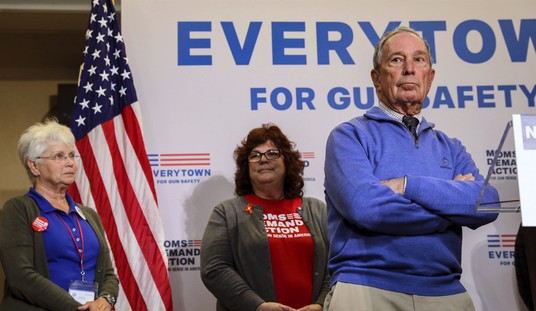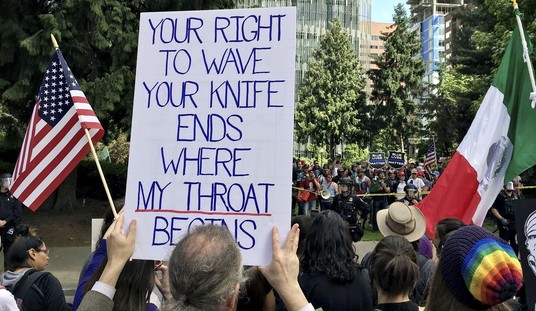Gun control advocates have been lobbying Kentucky lawmakers to adopt a “red flag” law this session, pointing to last summer’s mass shooting at a Louisville bank as a primary reason why they should approve legislation billed as Crisis Aversion and Rights Retention. While the GOP leadership in the House and Senate have been non-committal towards the bill, Republicans are offering a much more comprehensive approach to tackling violent crime; and one that doesn’t offer the false promise of increased safety at the expense of our individual rights.
On Tuesday House leaders unveiled the Safer Kentucky Act, which would increase penalties for violent offenders and make several other changes to state law without impacting legal gun owners or blaming them for the acts of violent offenders. There’s a lot to like about the bill, though one portion of the legislation could be subject to a constitutional challenge if it’s approved.
In an effort to target repeat violent offenders, people who are convicted of their third violent felony will be sentenced to life in prison without parole or probation.
“We cannot just stand by as our state’s most violent offenders circulate between the courts, the correction system, and back on our streets committing crimes. Let’s shut the revolving door,” [Rep. Jared] Bauman wrote in a press release.
Sponsors and co-sponsors of H.B. 5 want to increase the penalty for those who “delivered” or dealt fentanyl to a person who then later died from an overdose. Those who are found guilty of this will be convicted of murder.
Trafficking fentanyl will be upgraded from a Class D felony, which is 1-5 years in prison, to a Class B felony, 10-20 years in prison.
In addition, manslaughter will be added to the violent offenders statute.
“Madelynn’s Law”: Regulating bail funding
Under Madelynn’s Law, bail relief organizations will only be able to post bail for less than $5,000 and will not be able to help with bail if the person is accused of a violent crime, being held under a civil court order or in jail for a warrant under Casey’s Law.
If someone posts bail, a photo ID is required.
In addition, annual reports are required to be made to the legislatures by organizations that help people with bail. This information will be made public on their website.
That portion of the bill is named after Madelynn Troutt, a 17-year-old killed in a head-on collision in 2021. The person behind the wheel of the stolen car who hit Troutt’s vehicle was later bailed out by the Bail Project, but a previous attempt to ban bail relief organizations from posting more than $5,000 in bond money failed to make it out of committee.
I understand the reasoning behind this provision, but it’s still constitutionally suspect to me. The First Amendment protects our freedom of association, while the Fourteenth Amendment provides that no state shall (among other things), “deprive any person of life, liberty, or property, without due process of law; nor deny to any person within its jurisdiction the equal protection of the laws.” If an individual who can afford to post $100,000 bail can walk out of jail until trial, why shouldn’t members of an organization be allowed to pool their funds and come up with the cash for those who can’t afford to do the same? It sounds to me like the issue here isn’t really bail relief organizations, but the circumstances under which bail can be granted to defendants.
Despite my concerns over that section of the Safer Kentucky Act, the bill would offer substantial improvements in many areas of the criminal justice system. It makes repeated violations of a protective order a felony-level offense rather than a misdemeanor, requires those convicted of attempted murder to serve at least 85 percent of their sentence before they’re eligible for early release, ends early release for anyone who used a firearm in the commission of a violent crime, while those who are granted parole for violent crimes would be required to participate in a group violence intervention program once they’re released. And yes, it does touch on the mass murder in Louisville last April.
“Shopkeeper’s Privilege,” also known as “protecting what’s yours,” will allow business owners to use reasonable force to protect themselves and detain a person who may be stealing. In addition, it will give civil and criminal immunity to store owners or workers.
Additionally, threats of mass violence by an employee in the workplace will be placed under the terroristic threatening statute. This is in response to the mass shooting that occurred in April 2023 in Louisville at Old National Bank.
“With the mass shooting in April 2023, this act expands and explicitly states ‘workplace’ to be included as targets of violence,” Rep. Ken Fleming (Jefferson & Oldham) said in the press release. “These provisions help law enforcement in their monitoring of suspicious activity in order to be proactive in deterring an event.
While the legislation isn’t perfect, it’s a much better approach to combatting violent crime than, say, the “Lawful Citizens Imprisonment Act” approved by the Massachusetts House a few months ago. The fundamental difference, of course, is going after violent offenders rather than legal gun owners. It’s an approach that not only preserves the Second Amendment status quo in Kentucky but puts the onus for violent crime where it belongs: on the actual perpetrators. That alone is worth celebrating, even if the legislation could use some minor tweaking before it hits the House floor for a vote.








